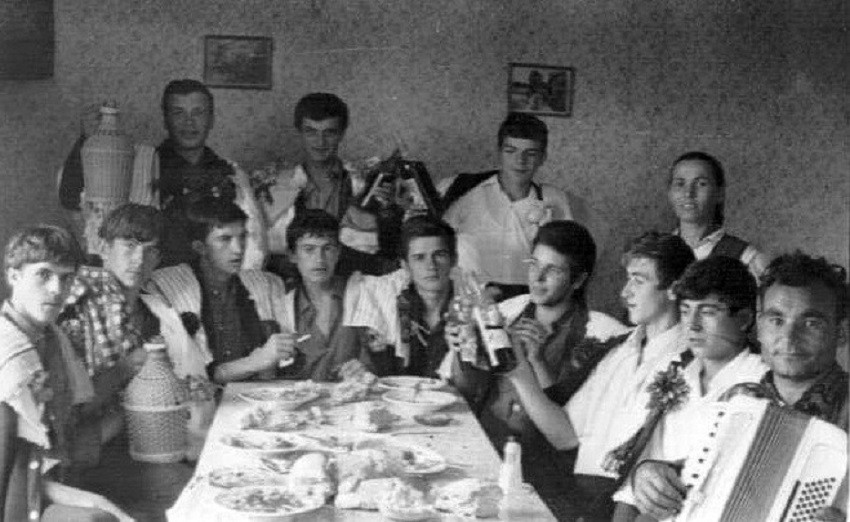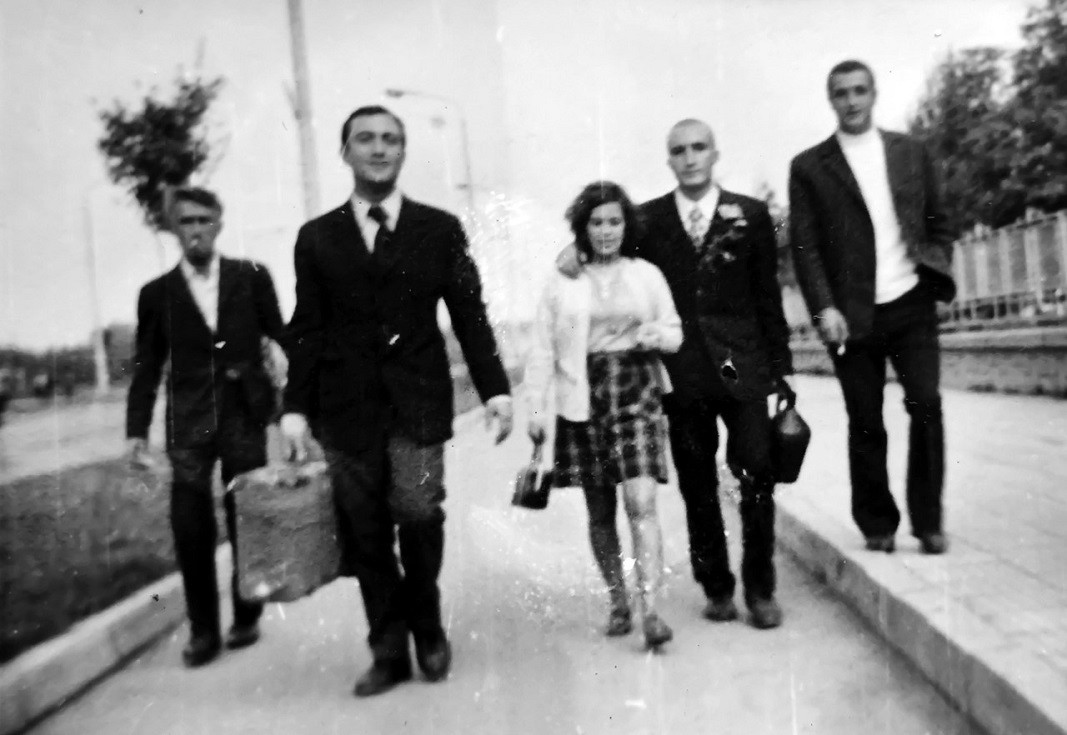“If you ever find yourself in Zhrebichko at “shanuvane” time, you would never know what you are seeing is young men about to go off to the army, you would think it was some kind of strange wedding,” says Prof. Ilia Peev. Mandatory military conscription has not existed in this country since 2007, yet the small village in the Rhodopes in Southern Bulgaria has kept the memory of the lavish parties as young men would be sent off to the army.

It is not known when the word “shanuvane” was first used and why it is used to denote this ritual. In the modern Bulgarian language, the word is not in use, but Prof. Peev’s research shows that in the past it was a word known in Bulgaria and in all Slavic languages. It is a word combining different meanings like respect, esteem, honour, dignity.
“Zhrebichko was founded by people coming from Tarnovo who, as the capital (Tarnovo) fell under Ottoman rule in 1393, fled to seek refuge elsewhere. Many of them found their way to the Rhodopes. Here, in this majestic mountain they founded Zhrebichko, which resembles Tarnovo very much, bringing the culture of the old capital here, and that included the respect they had for Bulgarian statehood, the Bulgarian army, their country, so it made sense to call the ritual of sending the men off to the army with the word “shanuvane”, Prof. Peev explains.
The “shanuvane” ritual in Zhrebichko spans ten days of celebration for the young men who have been drafted.

The first component of the ritual are the songs for the future soldiers – sorrowful, songs about love and faith which can be heard in the village from early in the morning until late into the night.
“The soldiers who would be joining the infantry or aviation, faced two years of separation, but for sailors it was three years. This explains why the songs were so sad, because separation brought pain to the soldiers, to their family, to their friends and girlfriends. An emblematic “shanuvane” song is “Devoiko, mari hubava” (Hey, pretty lass), Prof Peev says.
Petar Petrov, “Devoiko, mari hubava”, Zvezditsi vocal studio, Novi Pazar
The second element of this ritual are the gifts, the horo dancing and the celebrations.
The young men receive the first flowers and the first gift from their mothers, and as they make the rounds of the village they would be gifted by all villagers: shirts, tank tops, towels, pyjamas, footwraps, so much so that they would resemble grooms on their wedding day.

“The last evening is the most important when family and friends get together at the future soldier’s house, the party continues through the night and in the morning they all dance the last horo dance after before the young man leaves to go to the army.”
And the third “shanuvane” element is the respect and esteem for the future soldiers.

“This is the most important component because it combines the other two,” Prof. Peev says. “It is this third component that is the reason why the people of Zhrebichko have called the send-off “shanuvane”. Mandatory army service has been a thing of the past for a long time, but defending one’s country can never be a thing of the past because it guarantees the present and the future of the nation. That is what this ritual is all about.”
Photos: courtesy of Prof. Ilia Peev
For the first time in 500 years, the chants of the Divine Liturgy echoed through the ruins of the medieval monastery ''St. John the Baptist'' on St. John Island near Sozopol. The occasion was the commemoration of the Beheading of St. John the Baptist,..
The church board of the Bulgarian Orthodox Church “Holy Trinity” in Madison, Illinois (USA), has announced on its Facebook page that it needs a priest to serve in the church. “We humbly ask all brothers and sisters in Christ – in the wider..
An archaeological expedition led by Assoc. Prof. Dr. Boni Petrunova – Director of the National Museum of History, discovered a massive bronze statuette of a goddess from the Greco-Roman pantheon. The artifact was found in residential premises in the..

+359 2 9336 661
